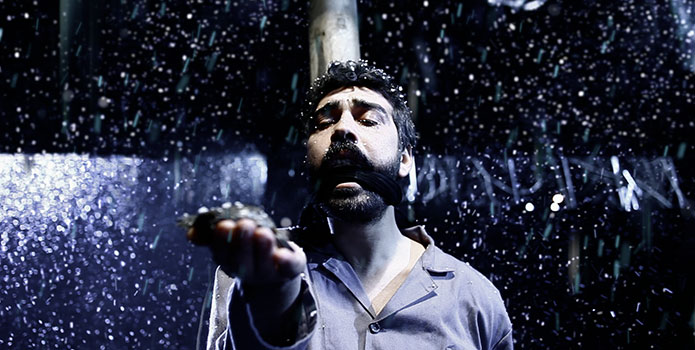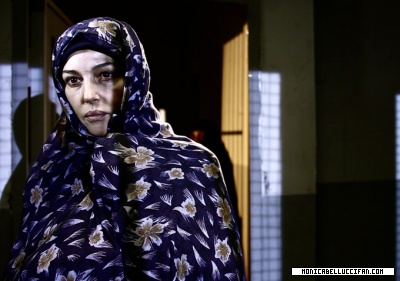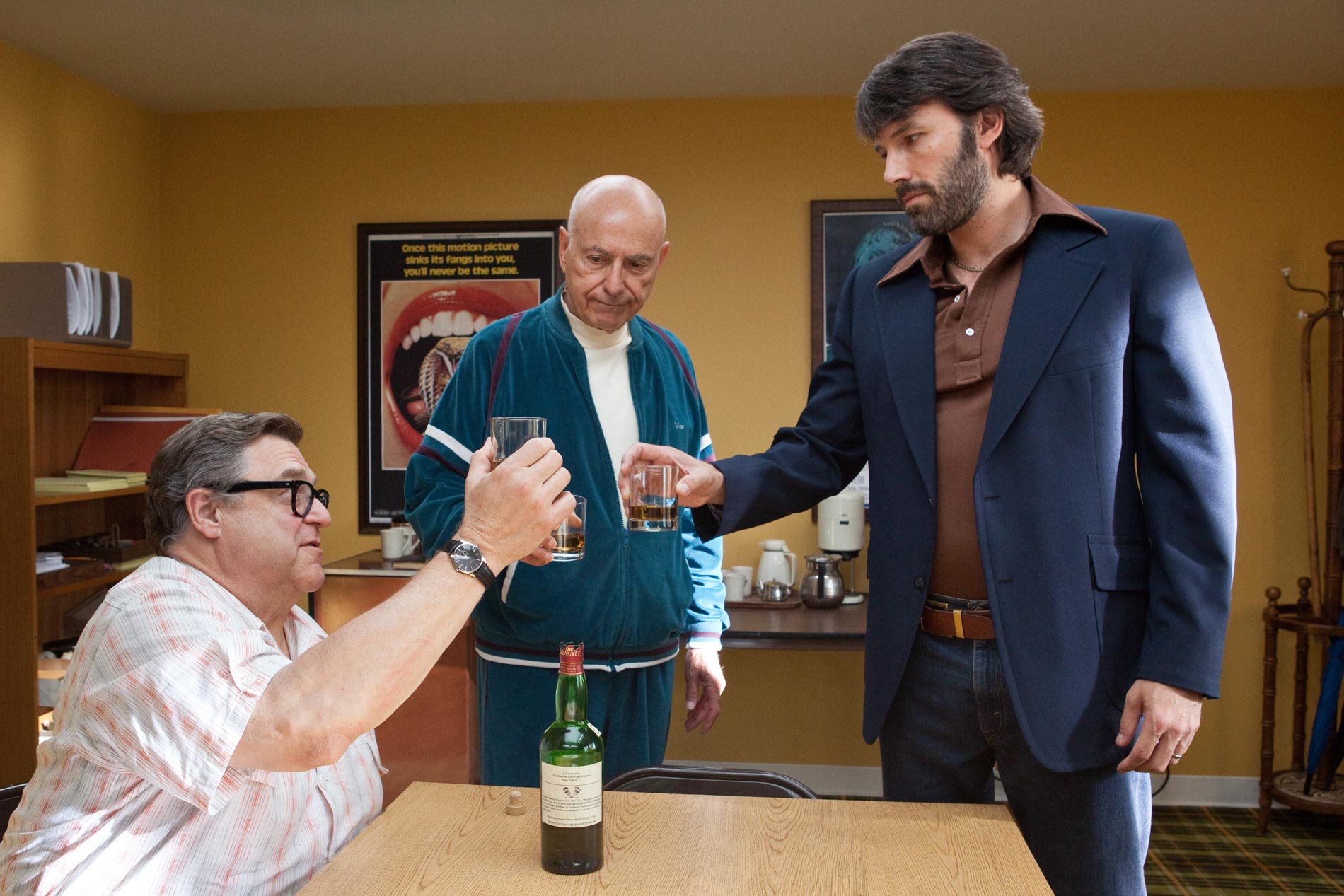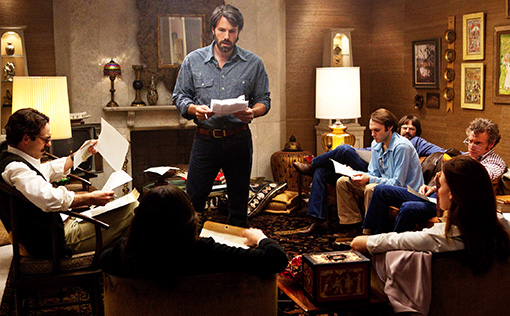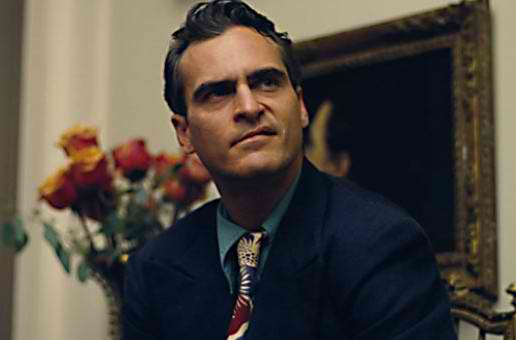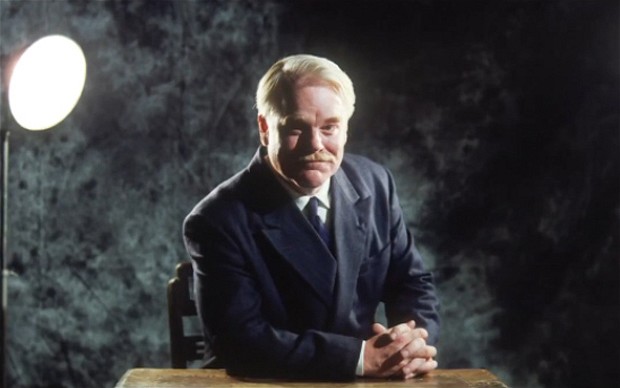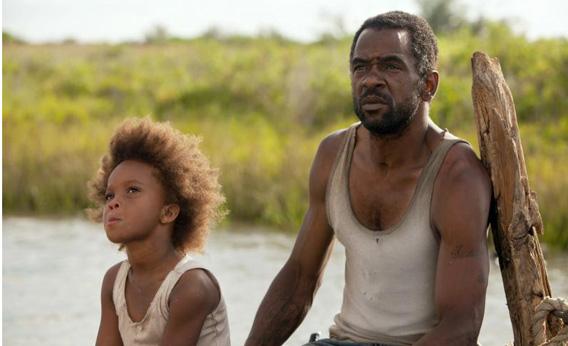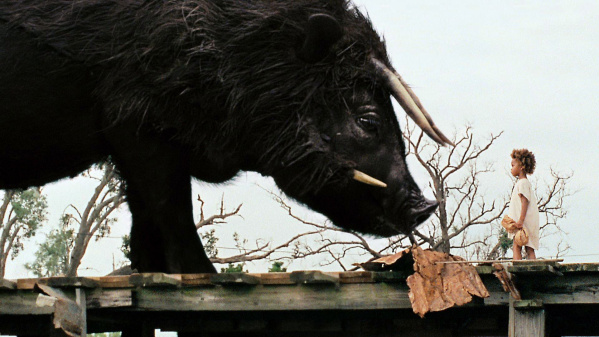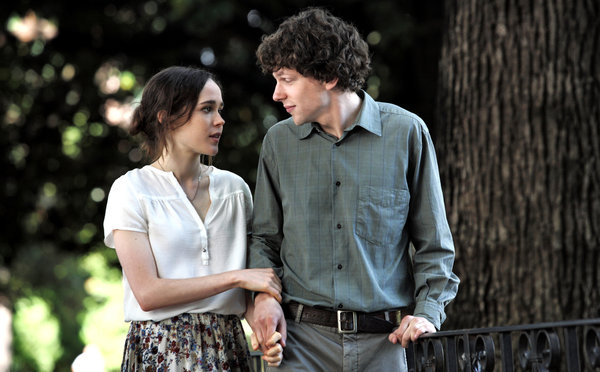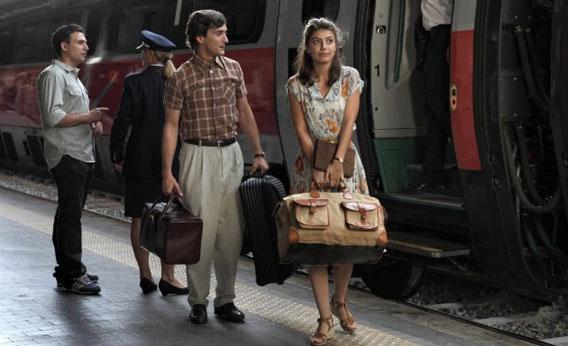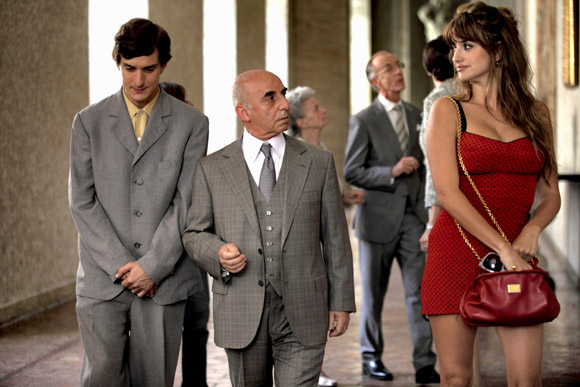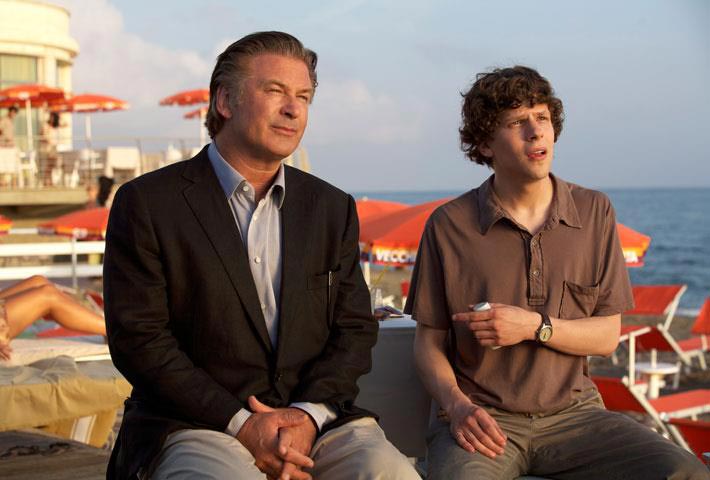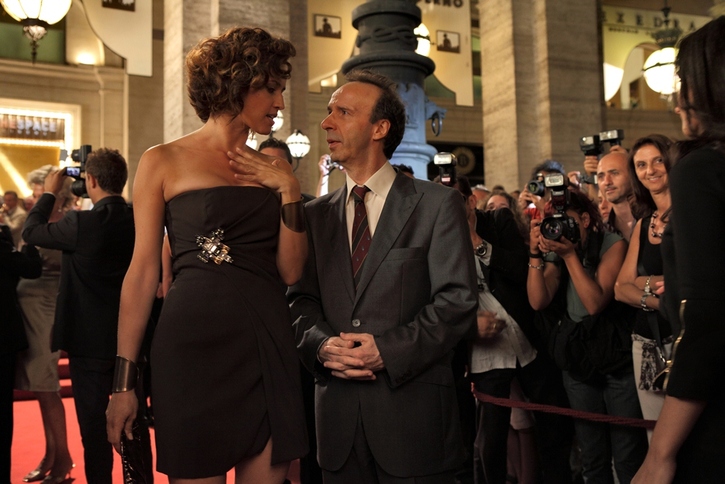Skyfall
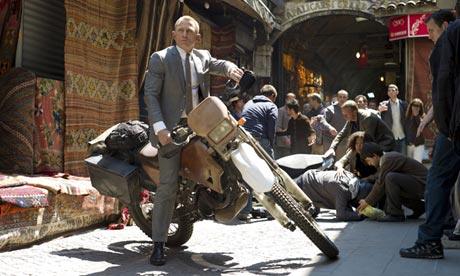
Though much is taken, much abides; and though
We are not now that strength which in old days
Moved earth and heaven; that which we are, we are;
One equal temper of heroic hearts,
Made weak by time and fate, but strong in will
To strive, to seek, to find, and not to yield.
--Alfred Lord Tennyson
These words are recited by Judi Dench’s M as a pointed retort to a committee confronting her with the idea that her time has passed as head of MI6. This is “Skyfall,” the 23rd James Bond movie for Eon Productions, the company created by Albert “Cubby” Broccoli and Harry Saltzman, and even as M says these words the old boy himself--played now by Daniel Craig--roars towards her on a motorcycle, hoping to thwart an attack. Earlier in the film we'd seen him come back from the dead, where she'd left him. His hands shake now when he holds a gun. Craig’s soulful mug is grizzled, a palooka who’s taken lots of punches.
Seeing as how it's James Bond’s 50th anniversary, I should admit that I’m a lapsed Bond fan. The series captivated my imagination in the early 80s in the first flush of adolescence. I vividly recall a first hormonal viewing of “The Spy Who Loved Me” aboard a cruise ship, in a dimmed lounge where I was enveloped by that swirling credit sequence and the Carly Simon theme song (“Nobody does it better...”), and afterwards stepping out onto the deck blinking in the afternoon sun, feverish. One of my favorite tapes in 1983, when I was 12, collected all the theme songs up to the then-current one, “Octopussy” (“You’re an All Time High,” in case you’d forgotten).
The same year, '83, we eagerly want to see “Never Say Never Again.” It'd kicked up a stir because it wasn’t produced by Eon Productions, and--more importantly--because it featured the return of Sean Connery. As a kid I preferred Roger Moore, an opinion which gave my friend’s dad paroxysms. This was the same friend with whom I used to play The Spy Game, our self-invented role-playing game ranging over yards and woods, our imaginary scenarios based in no small part on the action we’d seen in James Bond movies.
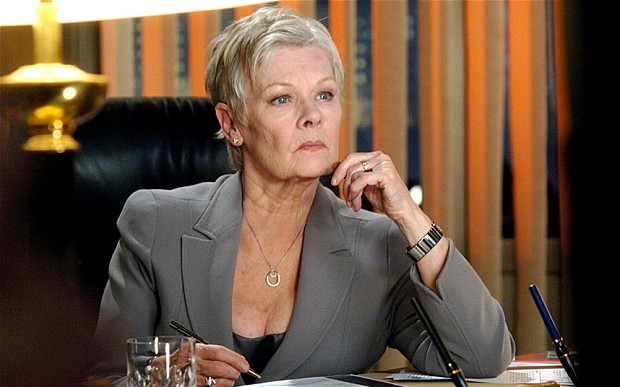
With adulthood I slipped off track: I didn’t see a single Bond through the Dalton and Brosnan years. Thus it’d been awhile when I got reacquainted with the series with “Casino Royale” in 2006. With “Skyfall” we’re now three films into the darker, tougher Daniel Craig reboot. Judi Dench has been playing M since 1995, but in other ways we’ve been starting from scratch. We hadn’t even had a Q, the gadget man. “Skyfall” introduces a droll one in Ben Whishaw: bespectacled, pimply and young, looking like the kind of fellow who still wears a scarf his mother knitted him so he could look like Dr. Who. (Karolyn found him sexier than Craig, a view I appreciated as a bespectacled man myself.) And what of Miss Moneypenny, you ask? Well, you’ll have to see.
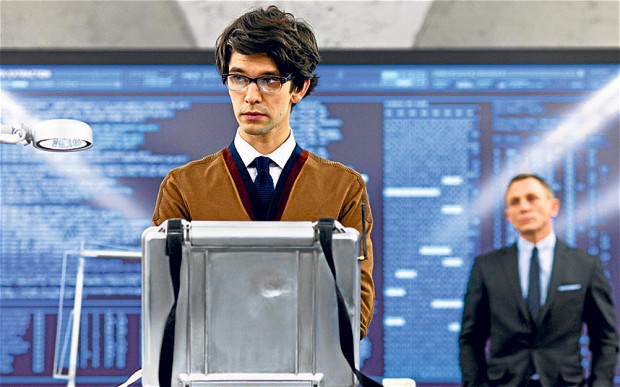
The story’s pretty straightforward. In pursuit of parties unknown, the film takes us from the Grand Bazaar of Istanbul to a nighttime Shanghai to the glowing, floating casinos of Maucau before settling down in the United Kingdom. Someone bent on hurting M is “outing” MI6 agents. “Think on your sins,” blares the hacker’s scrawl across her laptop. And M has sacrificed people she cares about, might even have loved--including Bond himself--for tactical reasons. But then, so has Bond. The ground is strewn with bodies in their wake. Yet there’s no guilt or sentiment about the hard choices made.
Sam Mendes directs this time, and the writing team is Neal Purvis, Robert Wade, and former Chicago playwright John Logan. Mendes has said his strategy was to go back to Ian Fleming’s novels rather than to look at the movies. The result is that the filmmakers have maintained quite a tricky balance. On the one hand they realize, wisely, that we want James Bond to remain always a cartoon fantasy on some level. But they’ve also bet that it might be interesting to give it some pathos as well. It worked in “On Her Majesty’s Secret Service” and it works here.
Rounding out the A-list cast is Naomie Harris as a field agent, Albert Finney as the caretaker of Skyfall (Bond’s childhood manor in Scotland), and Ralph Fiennes as an up-and coming MI6 man with whom Bond and M find themselves at loggerheads. Playing perhaps the key figure in any Bond movie--the villain--we have Javier Bardem.
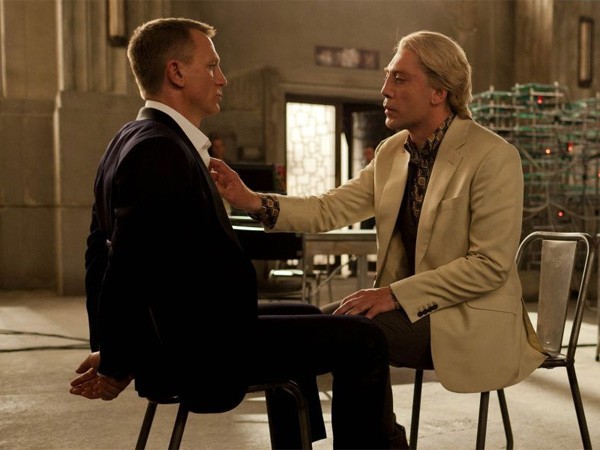
It’s shot by the poetic cinematographer Roger Deakins (the Coen Brothers, The Assassination of Jesse James by the Coward Robert Ford). Eschewing the shaky-cam that’s become the standard grammar in action movies, he seems to have approached each setpiece as a challenge: how can I make this as visually interesting as possible? There is a hand-to-hand fight on the darkened, deserted upper floor of a Shanghai skyscraper with Bond and his foe silhouetted against the city’s pulsing, neon billboards that fill the night with color and wiggling whips, all refracted and reflected off the many glass facets.
You could argue about which of the Bond films are really great movies. And that’s just what the ace team who put together this film has tried to make. I think what we get is...a pretty strong Bond entry. Even at times a moving one, with themes of aging and mortality if you want them, and honing into sharper relief than ever the theme of modernity vs. tradition that was always an engine of the series. It doesn’t do anything we haven’t seen before, but it does it well.
Perhaps that’s how we should rate a Bond movie: by how well it spins each of the genre’s elements.
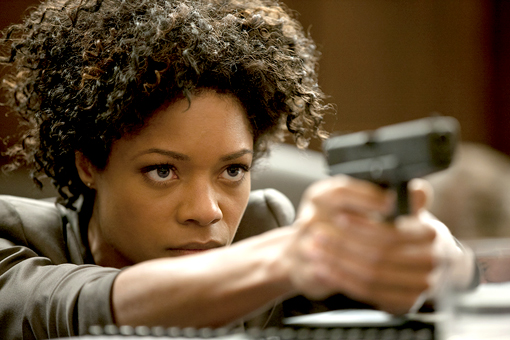
So, you’ve got to kick things off with an absolutely preposterous action sequence, with stunts so wild they make your face hurt from grinning. We get that here, with a motorcycle chase through Istanbul's Grand Bazaar that climaxes with some really extraordinary business involving a hurtling train and a backhoe. It’s got just enough physicality to clear the shoals of the cartoony.
Next up should come the credit sequence, riffing with a wink on the movie’s iconography and themes. It should be surreal and kaleidoscopic, over a big theme song belted out by a huge pop star. Here we get an eye-popping underwater motif, and Adele sings the hell out of a not particularly memorable song.
And what of that iconic Bond theme music? David Arnold described so perfectly its “bebop-swing vibe coupled with that vicious, dark, distorted electric guitar, definitely an instrument of rock 'n' roll. It represented everything about the character you would want: it was cocky, swaggering, confident, dark, dangerous, suggestive, sexy, unstoppable.” When it finally surfaces out of the score here, it’s exhilarating. I remember how “Never Say Never Again” felt like it had a hole in it since the producers did not have the rights to that music. (And speaking of icons--spoiler alert!--we applaud when the silver-gray Aston Martin appears.)
And what of the Bond girls? It must be recorded that bikinis are pretty thin on the ground here, a disappointment. That said, in her role as a kept woman, Berenice Marlohe is stunning in her slinky red dress. We first encounter her on that floating Macau casino. Marlohe is terrific in the scene as a watched woman who must appear to seduce Bond while suppressing how terrified she is of the villain. She does it with her eyes and with a trembling lip, conveying worlds about what the villain is capable of. Those eyes haunt me in a later scene when she’s bound and gagged and the villain forces Bond to take turns trying to shoot a shot glass off her head. She'd put her hope in Bond's hands to save her. He lets her down. There's nothing heroic about this moment. (In fact, he seems more upset later when the Aston Martin gets blown up.)
And what of the villain, always crucial to a Bond picture? Javier Bardem gives an interesting performance as a sort of fallen angel, a one-time star MI6 agent now presiding over an island ghost town. His hatred for M is just the flip side of love. He's homosexual, but in a nice touch his advances on a bound Bond fail to scandalize him (much to the villain's chagrin). Bardem gives the character some psychological realism while still making him larger-than-life, as a proper Bond baddie should be, even imbuing him with a hint of the tragic. It's in keeping with what Mendes and crew have accomplished with "Skyfall": walking a line between a fantasy of heroic hearts and a real world where heroics sink or swim in a sea of gray.
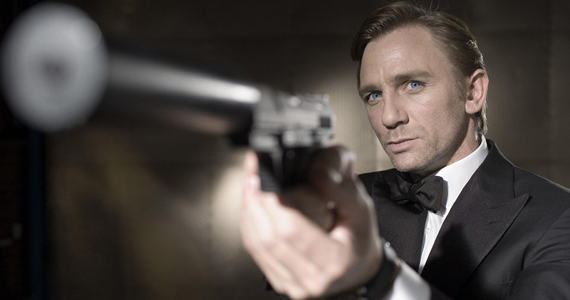
Rating: ***1/2
--November 20, 2012
Key to ratings:
***** (essential viewing)
**** (excellent)
*** (worth a look)
** (forgettable)
* (rubbish!!)


 Scott Pfeiffer
Scott Pfeiffer